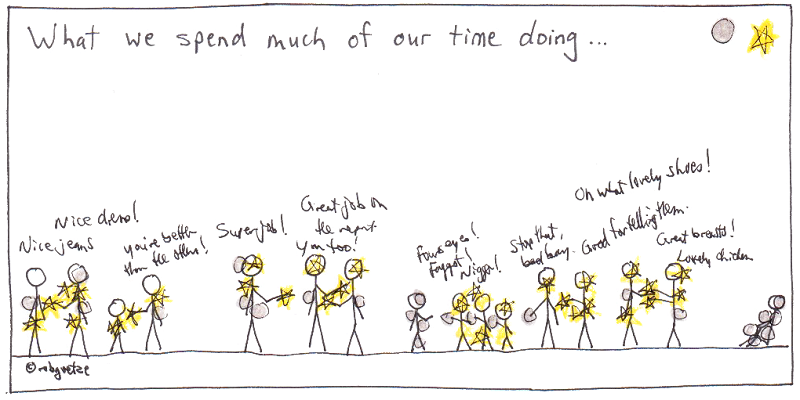The King will reply, ‘Truly I tell you, whatever you did to one of the least of these brothers and sisters of mine, you did to me.’
(Matt 25:40 NIV/robg)
Background, from Reuters:
Gambia's President Yahya Jammeh on Tuesday (Feb. 18, 2014) called homosexuals "vermin" and said his government would tackle them in the same way it fights malaria-causing mosquitoes.Can you imagine Jesus saying such things? Or treating another person like that?
The latest comments from Jammeh, who last year branded gays a threat to humanity, coincide with a renewed crackdown on same-sex relationships in Africa, where homosexuality is taboo and illegal in 37 countries.
In recent months, Nigeria has outlawed same-sex relationships and Uganda has voted for life imprisonment for some homosexual acts.
"We will fight these vermins called homosexuals or gays the same way we are fighting malaria-causing mosquitoes, if not more aggressively," Jammeh said in a speech on state television to mark the 49th anniversary of Gambia's independence from Britain.
....
I can't. Not for one moment.













